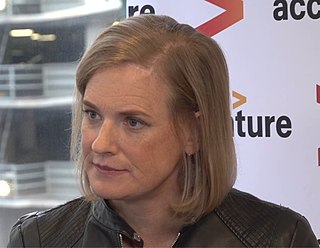A Quote by Tyron Woodley
I think a kid from the inner city, if I had to recruit, is the ideal person for MMA. They'd be less likely to be affected by hard work. They'd be less likely to not appreciate something when someone is helping them out, because they probably don't have a ton of stuff.
Related Quotes
People who believe that they are going to be excommunicated and shamed, or whatever other dark things may happen to them, are much less likely to enter open, loving relationships. And they are also much less likely to have the self-esteem that is required to be monogamous and loving. And in consequence, they are much less likely to create families.
There is a perverse comfort zone to living a small life. For women, that zone has to do with the fact that we're less likely to be challenged, we're less likely to be criticized, we're less likely to be called angry or strident, if we simply go along and acquiesce to the prevailing patterns of thought and behavior.
There are several hundred people who stayed in the Ebola-affected countries and continued to do the work, put themselves at great risk because medical workers are the most likely to be infected because they're helping out when the person's health is deteriorating, including quite a bit of bleeding as they're getting very, very sick.
Some kids win the lottery at birth; far too many don't - and most people have a hard time catching up over the rest of their lives. Children raised in disadvantaged environments are not only much less likely to succeed in school or in society, but they are also much less likely to be healthy adults.
Sometime over the past generation we became less likely to object to something because it is immoral and more likely to object to something because it is unhealthy or unsafe. So smoking is now a worse evil than six of the Ten Commandments, and the word sinful is most commonly associated with chocolate.
When we dislike someone, or feel threatened by someone, the natural tendency is to focus on something we dislike about the person, something that irritates us. Unfortunately, when we do this--instead of seeing the deeper beauty of the person and giving them energy--we take energy away and actually do them harm. All they know is that they suddenly feel less beautiful and less confident, and it is because we sapped their energy.





































